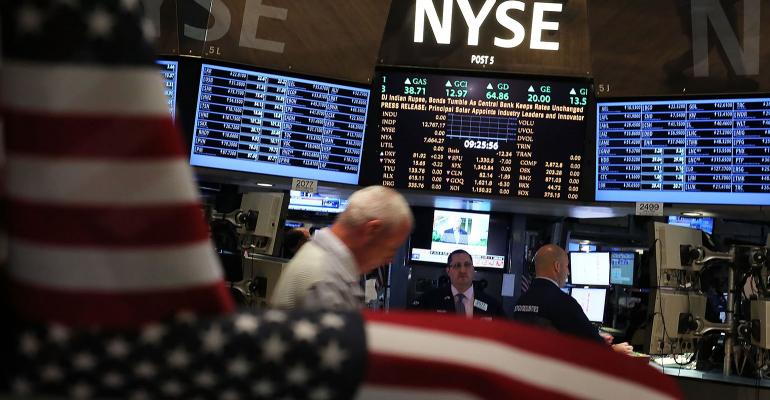By Douglas Cliggott
(Bloomberg Opinion) --The financial services industry generally does not like the idea of taxing financial market transactions, like that proposed last week by Democrat Senator Brian Schatz of Hawaii in the aptly named Wall Street Tax Act of 2019. Perhaps the concern is that it would reduce “market liquidity” and harm the economy. These concerns are misplaced.
In a bull market there is plenty of liquidity. It is easy to buy and sell a lot of stocks and bonds when folks are optimistic and prices are rising. In a crisis, however, it becomes very difficult to trade. The observed changes in “liquidity conditions” in these two types of market environments have nothing to do with transactions costs and everything to do with the fear of losing money when prices are falling.
The sad reality is markets misprice assets all the time. Look at the stock market during the past couple of months. What was the “equilibrium level” of the S&P 500 Index? Was it the low put in on Dec. 24 of 2,351? Or was it the high on Feb. 25 of 2,813? Or was it somewhere in between? The truth is we don’t know. Stock prices are simply far more volatile than the earnings and cash flows of the companies that they represent. And this mispricing often persists for long periods of time and results in suboptimal resource allocation for our economy.
A tax on securities transactions isn’t a magic elixir. It won’t prevent stock or bond prices from moving far away from their equilibrium values any more than high transactions costs can prevent house prices from moving far away from their equilibrium values. But nor will a transactions tax make our financial markets any less liquid or any less efficient than they already are.
So why then would a tax on financial transactions be a perfect tax? There are three reasons why.
First, billions of dollars of stock market transactions are already being “taxed.” For more than a decade, high-frequency traders have used “latency arbitrage” to take a little bite from hundreds of millions of transactions in U.S. equity markets. While a typical purchase order is slowly making its way to an exchange (the “latency” part), a trader with higher-speed access to that exchange intercepts the order and pre-emptively buys and marks up the price of the shares, and then sells them back at a higher price to the slower-moving buyer (the “arbitrage”).
This activity plays out in milliseconds over and over again, and the victim is unaware of the bite. This type of transactions “tax” does not do the public a whit of good, but it definitely enriches the traders whose low-percentage, high-volume skimming occurs with the full knowledge of for-profit financial exchanges. An explicit transactions tax could transparently and legitimately capture revenue for public purposes and put the high-volume skimmers out of business.
For believers in efficient markets, low-priced, easy-access trading — “frictionless markets” — has been the great dream. But the reality uncovered by psychologists and behavioral economists is that low-priced trading actually harms the vast majority of Americans that embrace it.
Low-priced, easy-access trading makes stock flipping as easy as liking a tweet. It enables our primal urges to follow the crowd and to chase the market. Turning the most straightforward market dictum on its head, low-priced trading — by both humans and machines — leads us to “buy high and sell low.” As the late Jack Bogle, the legendary founder of the asset management company Vanguard, said: “When it comes to trading, the greater the activity, the worse the returns.”
Taxing financial market transactions — intentionally adding meaningful friction to the market — would reduce wasteful trading and improve our financial well-being.
Also, the proceeds from a tax on financial transactions could do a lot of social good. The nonpartisan Congressional Budget Office estimates that a 0.1 percent tax on the value of stocks and bond transactions — that is a $1 tax on each $1,000 traded — and a 0.1 percent tax on actual payments made on derivatives contracts would generate roughly $775 billion over 10 years.
These revenue estimates may prove too high, but any social costs associated with a financial transactions tax appear to be close to zero. And the potential benefits to American society loom large. Isn’t that the definition of a perfect tax?
Douglas Cliggott is a lecturer in economics at the University of Massachusetts Amherst and a former managing director and U.S. equity strategist at JPMorgan.
For more columns from Bloomberg View, visit bloomberg.com/view





